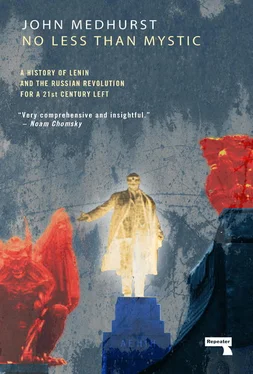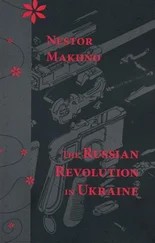Within the Bolshevik Party, where the real decisions were being made, Lenin called upon the activists of the Petrograd Committee to exert pressure on “the Muscovites” Rykov and Nogin, who stood for a socialist coalition. A stream of resolutions and messages then began to arrive from Petrograd Bolsheviks demanding no concessions be made in the negotiations. Faced with this onslaught, some CC moderates backtracked and agreed that Kamenev had exceeded his remit. The CC decided that whilst the Bolshevik team would return to the talks it would do so only to issue an ultimatum to the other participants.
At the CEC session of 2nd November, the Left SR Boris Malkin fiercely condemned the Bolshevik position. He told the CEC,
the tactics adopted by the Bolshevik Party now in power are leading irrevocably to a schism among the toiling masses; that the dictatorship of a single political group, which it has in effect established, will with inevitable logic bring about severe repression, not only of members of the propertied classes, but also of the masses; that such a policy has already been put into practice by the Council of People’s Commissars and other executive bodies, in regard to the press as well as various individuals and organizations; that this policy is inexorably leading to the ruin of the revolution.
He ended with a warning that the Bolsheviks’ intransigent position on reaching an agreement “is plunging the country into the abyss of civil war”. 19
After hearing out Malkin’s attack, Kamenev repeated the Bolshevik resolution of the previous day. He told the CEC that a socialist coalition government, of whatever complexion, must implement the Decrees on land, peace, workers’control and nationalities passed at the Second Congress of Soviets; that it must be beholden not to a new People’s Council but to the current Soviet Executive; and both Lenin and Trotsky must have positions in the new government. Despite Malkin’s assault on the Bolsheviks, other Left SRs were tempted to back the Bolshevik majority on the CEC, especially as the Bolshevik position quite clearly stated that Sovnarcom was answerable to the CEC. Proshyan of the Left SRs undercut Malkin completely by suggesting that the Left SRs could support the Bolsheviks as long as a Left SR got to head the Ministry of Agriculture. The majority on the CEC shifted away from its initial rejection of the Bolshevikposition to acceptance.
The CEC was for the moment convinced, but when Riazanov put the Bolshevik CC’s new terms to the other Vikzhel negotiators on 3rd November, they came as an unpleasant shock. The Left SRs/Left Mensheviks wanted to accept them but the majority did not. They regarded Sovnarcom’s Decrees–and Sovnarcom itself–as arising from a violent act that had no legitimacy. Whilst this was technically true, it was woefully out of touch with reality. Martov knew the Bolsheviks had to be accommodated if any coalition would work, but the majority of the Mensheviks, the Right SRs and the Bundists–sharing the widespread belief that the Bolsheviks could not retain power for more than a few weeks–rejected the conditions. They blamed the Bolsheviks and the Bolshevik-led CEC for altering the terms of the initial agreement. The talks were not abandoned, but in all essentials they had ceased. The Bolshevik “moderates”–Kamenev, Zinoviev, Rykov, Nogin and Miliutin, though not Lunacharsky–resigned from the CC in protest.
The collapse of the only attempt to form a broad socialist coalition after the October Insurrection, and the general impression amongst the militant working class that it resulted from the refusal of the non-Bolshevik socialists to compromise and not from Lenin’s adamant rejection of the idea, gave to Bolsheviks still fighting in other cities added self-confidence and energy. By 3rd November Bolshevik forces had secured Moscow and the sinews of a new regime were beginning to take shape. Its initial Decrees were popular. Sovnarcom, as the face of the new regime, could have exploited that popularity and used it to build a popular socialist consensus amongst the majority of Russian people. Its opponents were in total disarray and commanded little support. Despite resistance to its rule from the remnants of Kerensky’s forces and armed rebellion in the Don Region, there was no need to restrict civil rights and freedom of the press. Yet within days of 25th October the new regime had already closed most of Russia’s newspapers.
On 29th October, Sovnarcom issued a Decree restricting freedom of the press. The clampdown began immediately. The legendary SR leader Catherine Breshkovsky’s Volia Naroda was shut down, with the editor and founder of the SR party Andrey Argunov imprisoned in the Peter and Paul Fortress. So too was the social-democratic Yednistvo , edited by the “Father of Russian Marxism” George Plekhanov. The printing presses of Russkaya Volia , edited by the novelist and playwright Leonard Andreyev (supportive of the February Revolution but critical of the Bolsheviks) were immediately confiscated. Although the official SR journal Dyelo Narodo was banned, militant soldiers sympathetic to the SRs guarded its premises and for a while it was produced illegally.
Even the Left Menshevik newspaper Rabochaya Gazeta , inclined to support the Bolshevik regime and implacably hostile to counter-revolution, was closed down because it did not slavishly reproduce the Bolshevik line at all times. In February 1918 at the Fourth Congress of Soviets, Lenin confronted socialist delegates who complained that their newspapers had been closed down. “Of course, unfortunately not all of them!” he responded from the top table. “Soon all of them will be closed”. 20Between October 1917 and July 1918 Sovnarcom closed down over 300 newspapers and periodicals. 21
Between February and October 1917, the Bolshevik Party, as Trotsky admitted, had “de-Bolshevised” itself in order to respond to mass movements and popular feeling and to attract a wider membership. That phase was over. Already, on 3rd November, Lenin put a resolution to the Central Committee titled “Ultimatum from the majority of the Central Committee to the minority” that demanded that those who wished to pursue talks with other socialist parties desist or be expelled from the party. Lenin insisted on the removal of the dissenters not just from their CC positions but all other posts. Thus Kamenev was replaced as Chair of the Soviet Executive by the uber-loyal functionary Yacob Sverdlov, who was also head of the CC’s informal Secretariat.
On 4th November the Bolshevik moderate Yuri Larin put a resolution to the Soviet Executive that newspapers should remain free of censorship and repression unless they incited armed rebellion against Sovnarcom. The resolution was supported by many socialists including Bolshevik moderates and Left SRs. Larin told the CEC, “The measures taken against press freedom could be justified during the actual course of the struggle, but not now. The press should be free so long as it does not incite subversion and insurrection. Censorship of every kind must be completely eliminated”. Larin’s resolution demanded that Lenin’s press Decree be revoked and that “no acts of political repression may be carried out except by authorisation of a special tribunal chosen by the CEC”.
Malkin again attacked the Bolsheviks. He demanded the CEC “examine the question of the powers of the Council of People’s Commissars, which is issuing one decree after another without any sanction by the CEC”. When the Bolshevik CEC Secretary Avenesov replied that it was ridiculous for the Soviet to “stand up for antiquated notions about liberty of the press”, the Left SR Kamkov interjected,
Either we recognise freedom in words, or else we are behaving hypocritically […] No one has yet called for the overthrow of the existing regime, yet press freedom is being infringed without due cause. We are morally obliged to rescind these repressive measures, which bring shame on the Russian Revolution.
Читать дальше












